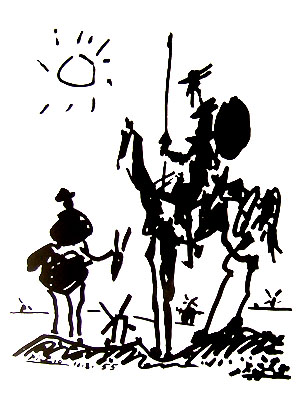Energy Level
A distinction is to be made about the energy level of a person and the kinetic quality of an activity. A personal high energy level is very different from a high activity level. In fact, frenetic activity almost always speaks to a low energy level and exhaustion. A high energy level in a human allows muscles to be relaxed and therefore ready to apply exactly the right amount of force at the right time. There is a feeling of readiness.
As for the energy characteristic of an activity, as Fritz Perls has pointed out, all thought (even brilliant thought) and language is low-energy activity, and all physical action is high energy activity. That is why 'thinking ahead' about a big physical or practical activity conserves energy by moving the trial and error phase to mental activity.
However biology, including emotion, seems to flourish when there is sufficient high energy activity in a life. It is beneficial to understand the distinction between high social value, urgency, and high energy in activity, and the energy state of a person, because depression is a disorder of energy, unrelated to the merit of what the person has been doing.
Mental Efficiency
This is a concept adapted from Pierre Janet and his work with the trauma response. A basic part of human functioning and adaptation is the capacity first, to turn needs, desires, thoughts, demands, feelings, instincts, and reflexes first into a conceived adaptive next step, and second, to implement that step. This Janet called mental efficiency. I have struggled with this name because it is not so much a cognitive concept as an energetic one. This process depends on energy level as described above, but energy may be insufficient if the process of determining an action is too chaotic and indirect, or in other words, inefficient.
Any coping mechanism that consumes energy and interferes with straight-forward feeling and thinking decreases mental efficiency. Avoidance, denial, and addiction are major offenders. Poor grounding decreases mental efficiency because it prevents the 'reset' from charge-discharge cycles. A lower capacity to hold feeling and energy will limit mental efficiency.
As mental efficiency decreases it often leads to practices that further decrease it. Leaving many things undone, poor self-care and hygiene, living in a cluttered environment, excessive 'screen time', escaping consequences, excessive fantasy, or excessive distraction all are in this category. Poor sleep both contributes to, and is contributed toward by low efficiency.
Low mental efficiency leads to wasting the energy that is present in aimless unsatisfying activity. Energy then cannot be renewed or built up. The person is in a morass. Others may see him or her as lazy. In the traditional 'self-growth' tradition, clients had good enough efficiency to be self-directed. In our present over-stimulated time this may not be the case.
Where efficiency is low, classic Reich and Lowen therapy may be too demanding or ununderstandable, so somewhat more direct guidance may be of benefit. Needs are to 1) prioritize rest, 2) use the body, 3) close 'open loops', 4) declutter the environment, 5) limit TV and other screen time, 6) acknowledge and respond to the communications of others, 7) talk frankly about what is going on, 8) do only one thing at a time, 9) limit or end demanding relationships, 10) find and practice some simple pleasures, etc. Most of these elements use to be part of a 'rest cure' but that practice has gone by the wayside. This direct guidance is not meant to be coaching in any final way to live, but a 'pre-therapy.'
